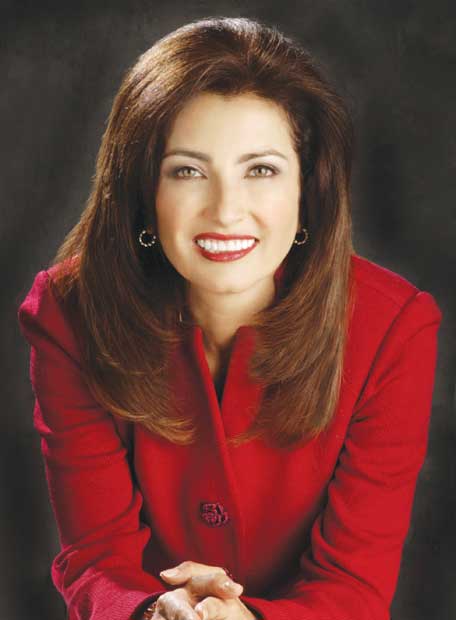
FAMILY FRIENDLY | Dallas County Commissioner Elba Garcia, who led a drive to make Dallas the only county in Texas with nondiscrimination protections, is now is trying to extend FMLA leave to care for same-sex spouses.
Dallas County’s LGBT employees came a step closer to equal benefits this week when the Commissioners Court at its weekly meeting on Monday, Dec. 16, discussed updating sick leave and leave of absence policies to include its LGBTs and other employees.
The city of Dallas updated its family medical leave policy earlier this year.
To remain in compliance with Texas law banning legal recognition of same-sex marriage, county officials propose allowing any employee to name one person as a “designated care recipient.” But that maneuvering may be unnecessary because the anti-marriage-equality constitutional amendment the county is tip-toeing around has already been found unconstitutional in federal court. An appeal by the state of Texas will be heard by the 5th Circuit Court of Appeals on Jan. 9.
The solution to extending family leave to LGBT employees and others who are not married is to allow an employee to name one designated care recipient, regardless of that person’s age or whether that person resides in the same household. So gay and lesbian employees would be able to name a spouse.
Under the federal Family Medical Leave Act, employees may take up to 12 weeks of unpaid leave to care for a parent, spouse or child. People with same-sex partners have been excluded from caring for their spouses under the act, although many employers have extended the benefit to them.
The problem for same-sex spouses in non-marriage-equality states is that the spouse is not recognized.
Under current Dallas County policy, leave may be granted at the discretion of the department head or elected official for up to three months in any 12-month period. No one has complained of discrimination against the county’s gay or lesbian employees in regard to the policy, but the policy change would clear up any doubt.
Single people — gay or straight — might designate a close friend or relative as well, a provision included in the city policy that city attorneys believe kept the regulation within the challenged state law.
Rafael McDonnell, communications and advocacy manager for Resource Center, spoke to Commissioners Court about the policy.
“Those employees, by being able to designate someone for whom they serve as caregiver for the purposes of sick leave and leaves of absence, won’t have to choose between their jobs and families they are committed to love,” McDonnell said.
During the commissioners’ discussion, there were no questions about allowing an employee to take time off to care for a same-sex spouse. Questions about who would be covered instead revolved around others who employees might designate, like an elderly neighbor.
Under FMLA, children are covered, but grandparents and grandchildren are not. Since grandparents often raise their grandchildren, commissioners questioned what would happen if employees could only name one child living in their house.
The director of human resources said she’s have to get back to them on that one.
Commissioner Elba Garcia said the policy on family leave hadn’t been updated in awhile and it was time to provide this benefit to all of the county’s employees.
“We’re delighted to continue to move forward when we can help families,” Garcia said.
She called the briefing productive and said she expected the policy change to be approved after a 30-day comment period.
“All of the commissioners are delighted to see a policy that will affect all of the employees of Dallas County in a positive way regardless of any status,” Garcia said. “The feeling I got from my colleagues is it’s a step forward.”
Dallas County’s human resources department studied the issue and said the proposal could have a financial impact as more people asked for leave. Although FMLA leave is unpaid, some overtime might have to be paid to other employees. The unpaid leave might actually amount to a cost savings.
The recommendation was forwarded to other elected officials and department heads for a 30-day comment period. Commissioners are expected to vote on the issue in January.
This article appeared in the Dallas Voice print edition December 19, 2014
















